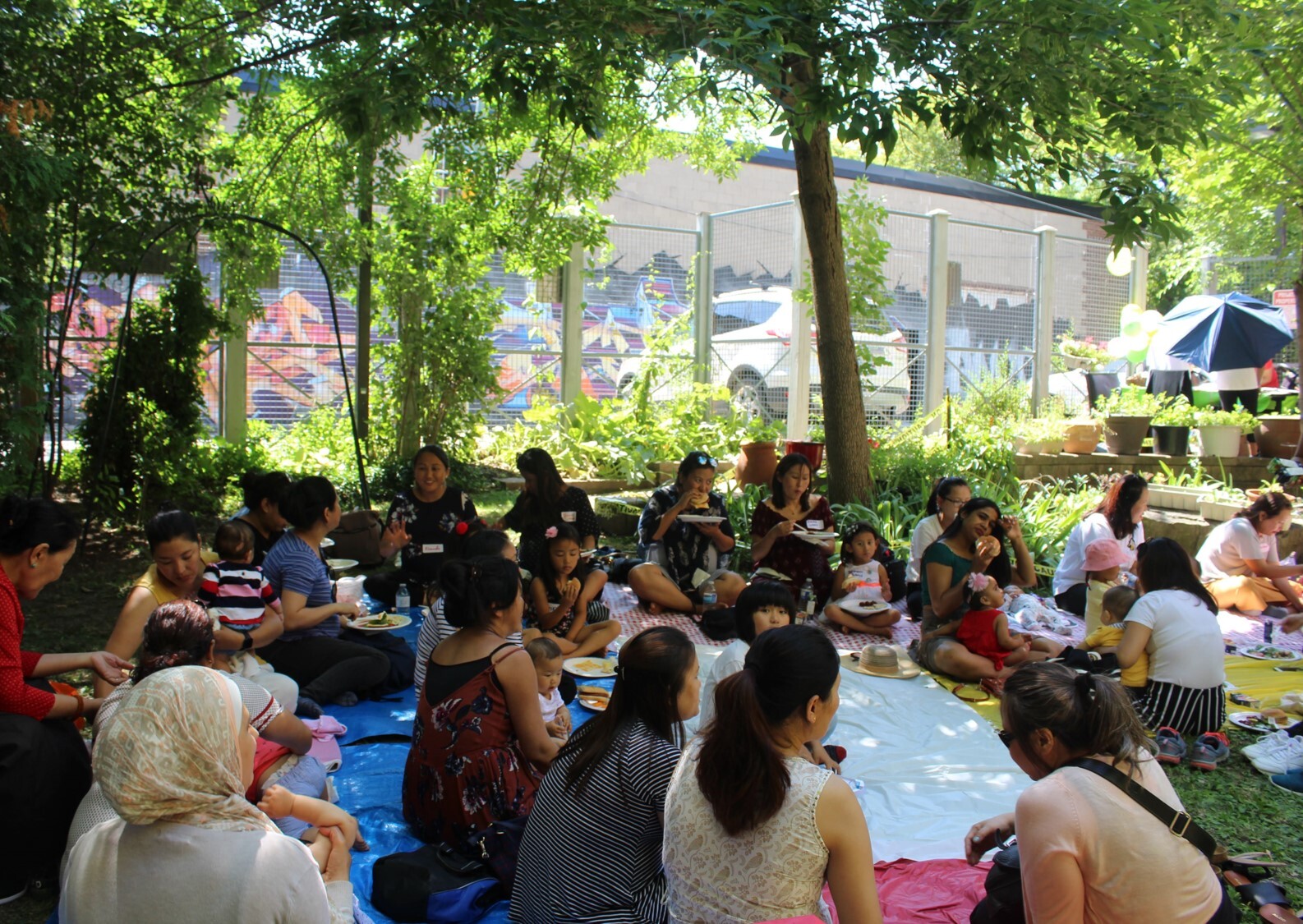Mobile Menu
- About Us
- Undergraduate
- Graduate
- Postdocs
- Research
- Alumni
- Giving

A recent survey by researchers at the University of Toronto has provided the first in-depth view of lactation and food support in a long-running national prenatal program, which serves families facing social and economic challenges.
The study shows that sites involved with the Canada Prenatal Nutrition Program deliver support in a wide variety of ways, and that they are resourceful and resilient — despite no increase in the program’s overall budget since it began in the 1990s.

“This program provides such a great opportunity to invest in maternal and child health within communities,” says Jo-Anna Baxter, lead researcher on the survey team and a postdoctoral fellow at U of T’s Joannah & Brian Lawson Centre for Child Nutrition and department of nutritional sciences.
“Program sites have demonstrated how much they do with their limited funds, so imagine the return on investment if its funding kept up with inflation,” Baxter says.
The program emerged from Canada’s commitment to the United Nations Convention on the Rights of the Child. It distributes $26.5 million annually to more than 200 projects, which are run by community agencies at sites across the country.
Site staff provide flexible and locally adapted support, which can include breastfeeding promotion, food, prenatal vitamins, nutrition and lifestyle counselling, as well as referrals to other services.
For the current study, a team of scientists surveyed staff at 91 sites in all provinces and territories except Quebec, which uses a different program structure.
Baxter led the study, working with postdoctoral fellow Alison Mildon, Professors Dan Sellen and Deborah O’Connor from nutritional sciences at U of T’s Temerty Faculty of Medicine, and postdoctoral fellow and U of T alumna Jane Francis at Acadia University.
The team documented the varying types of infant feeding and other food support provided at the sites, and also aimed to understand how the COVID-19 pandemic affected service delivery.
“The survey shone a light on this understudied program, and there was an eagerness from frontline workers to contribute significant time to showcase their services,” says Sellen, director of the Lawson Centre for Child Nutrition, who is also a professor of anthropology, and social and behavioural health sciences at U of T.
“We are grateful that there was such a positive response from so many sites all across Canada, who shared robust data on the program's activities and reach.”
The survey’s results paint a picture of under-resourced but resilient sites that offer a range of services to support participants with breastfeeding and food needs.
Staff deliver breastfeeding support primarily through educational materials and referrals to other community agencies, but the survey revealed they want more training and resources to offer hands-on support.
A major concern for participants is food insecurity, which escalated as inflation and the cost-of-living crisis worsened during the pandemic and subsequent recovery. Site personnel also worry about participants’ food needs and how best to provide support.
The survey also found that program sites rely heavily on in-kind services and external funding from other agencies, which can create inequities among sites.

“Sites are relying on other community partners to support their programming, but not every community or organization has the same resources they can draw on,” says Mildon, who is a registered dietitian with two decades of community nutrition experience.
“To see this reliance on additional resources across the board reinforces the point that core resources for the program haven't increased,” Mildon says.
Many other federal programs for children don’t cover the prenatal and newborn period, Mildon notes. “This program is unique in that it focuses specifically on that critical time period, so we feel it needs to be protected and strengthened,” she says.
Maternal and infant health, nutrition, and well-being from pregnancy to early childhood are undeniably critical, Baxter adds, with lifelong consequences physically and developmentally.
The research team plans to share the survey’s findings broadly, with program users and partners but also policymakers and politicians. Sellen says it’s important the results reach decisionmakers and ultimately have an impact on people who use the program.
“We now have insight from sites across the country on the strengths and challenges of this program,” he says. “The results point to opportunities to strengthen the program and provide evidence for upgrading funding to meet the needs of 2024 and beyond.”
The Canada Prenatal Nutrition Program is funded by the Public Health Agency of Canada. This research was funded by The Sprott Foundation, the Canadian Institutes of Health Research (salary support for Jo-Anna Baxter), and the Joannah & Brian Lawson Centre for Child Nutrition.
